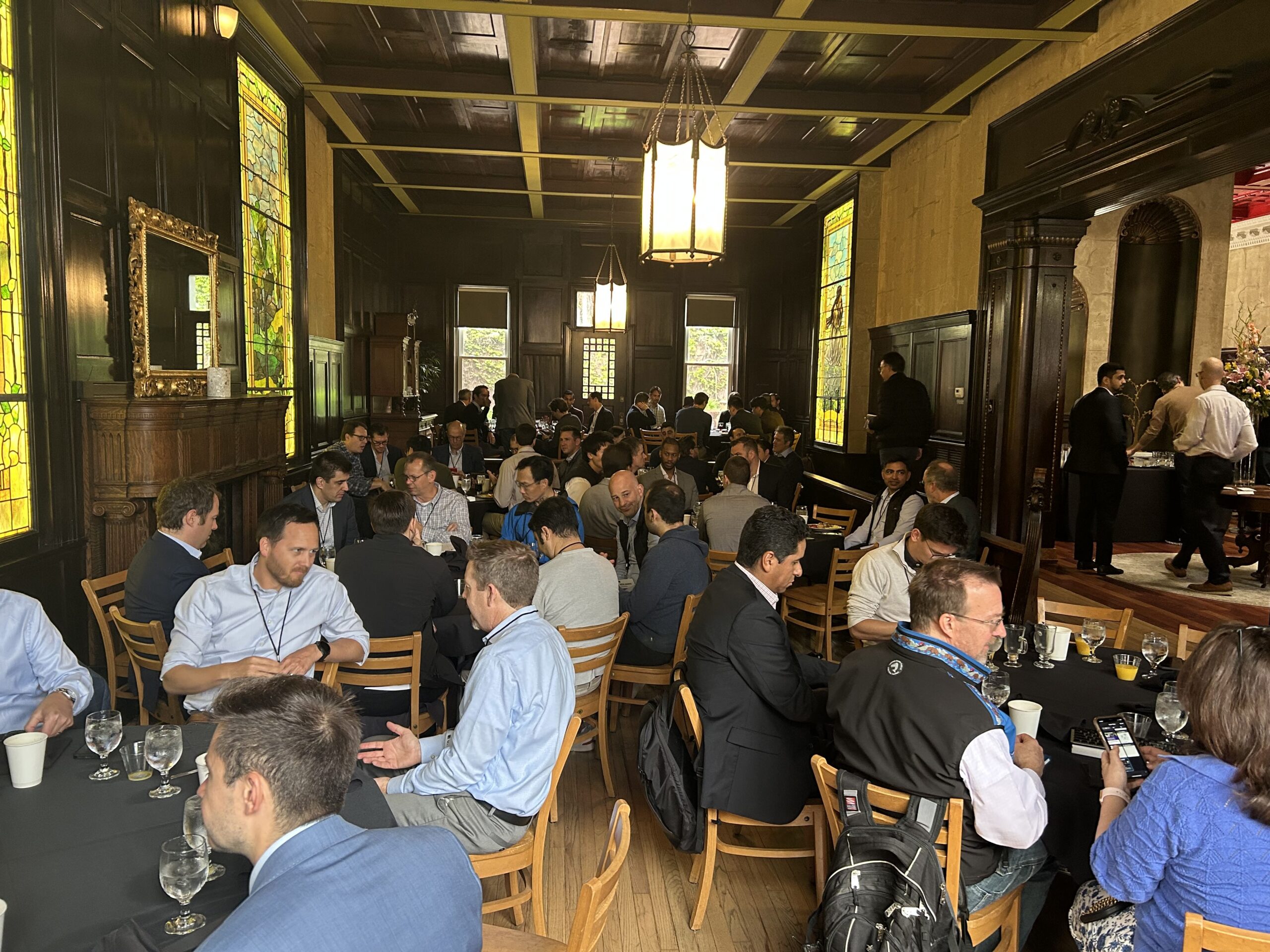This article is authored by Felix Narhi, Portfolio Manager and Chief Investment Officer of PenderFund Capital Management, based in Vancouver, Canada. Visit the PenderFund Blog for additional insights.
“American investors are missing out on China. It just looks too hard, sitting in Omaha… but it’s where they should be looking.” –Charlie Munger, Berkshire Hathaway
In October 2019 we joined an immersive tour of Chinese technology companies arranged by Rui Ma and Ying-Ying Lu, co-hosts of the outstanding TechBuzz China podcast, along with a group of thoughtful and curious investors from all around the world. It was a fascinating trip, with numerous private and public company visits, as well insights from many notable guest speakers, including investors, industry experts, government officials and entrepreneurs on the nuances of business in China. As a backdrop, the trade war continues to pressure investor sentiment, but that is not necessarily a bad thing. Indeed, it has been said that in the Chinese language, the word “crisis” is composed of two characters, one representing danger and the other, opportunity.

For the too long; didn’t read (TL;DR) crowd, our key trip takeaways were that Alibaba and Tencent remain extremely dominant in consumer tech, most small Chinese tech companies are uninvestable from our perspective, and Western bias remains a common source of misinterpretation and misunderstanding in a country that is complex, multifaceted and not easily-defined. Whether you invest directly in China or through popular stock market proxies like Apple, with its heavy exposure to the country, what happens in China matters. For long-term investors, we believe it makes sense to increase their circle of competence to a country that will only grow in economic importance in the coming decades. One of the best ways is to visit and find out for yourself what matters. This essay follows up on our post from early 2019, “Some Thoughts on China”.
What matters? It’s the profits.
“A durable competitive advantage has proven elusive ever since the days of the Wright Brothers. Indeed, if a farsighted capitalist had been present at Kitty Hawk, he would have done his successors a huge favor by shooting Orville down.” –Warren Buffett
All businesses have value chains and profit pools. There are plenty of businesses that create value for certain stakeholders but provide no economic benefit for investors. This reality is poorly understood by many investors. The profitability of an industry is not the same thing as its importance to society. Take, for example, the airline industry, which has created massive value for society as a whole (consumer surplus) but generated very little profit for shareholders (producer surplus). With a few exceptions, owning airlines as long-term investor has been a poor idea. The economic share a participant gets within a value chain depends on the supply and demand for what they provide, which determines their negotiating leverage.
Who has the most negotiating leverage in China tech? We already knew that Alibaba and Tencent dominate China consumer tech, but our trip made it even clearer how deep and pervasive their respective ecosystems have become. For better or worse, there are few real alternatives for smaller Chinese tech companies to access the consumer. Thus, these two tech giants have been able to maximize their leverage and currently earn the vast majority of the profits in China tech. To be sure, many of their affiliates and partners post impressive revenue growth. But before anything drops down to their bottom line, significant value is carved out of each transaction which goes to Alibaba and Tencent through their digital payment platforms, technology spend (cloud), take rates from ecommerce platforms, revenue share from app downloads and online advertising revenue, amongst others. These “Walled Garden” platforms act like toll booths for much of China tech. Unfortunately, there is not much profit left over for the owners of smaller companies reliant on their platforms.
If you win, you still might lose (eventually)
“If we are victorious in one more battle with the Romans, we shall be utterly ruined.” –Plutarch
In addition to value extraction from each transaction, virtually every company we visited had a strategic investment from either Alibaba or Tencent which further aligned them to these two dominant ecosystems. These investments were highlighted partly because they lent credibility to the company. But these strategic relationships can also be a double-edged sword. One management team told us they enjoyed tremendous early success on Alibaba’s T-mall ecommerce platform. But it turned out it to be a Pyrrhic victory. Ultimately, this feat attracted the attention of Alibaba’s management who decided to pursue a classic “carrot and stick” negotiation tactic. They made an offer to buy the firm, or alternatively, be shut out of the Alibaba ecosystem. The firm opted to stay independent and was subsequently cut off from all their links to T-mall. It has been struggling to find a viable business model ever since. These types of anecdotes are sobering reminders about the perils of being dependent on this consumer tech duopoly.
Of course, both should benefit from their dominant market position and innovation. But there is a limit. An ecosystem is more sustainable if all users of the platform benefit. We can’t help but wonder if all of this value extraction might come to haunt Alibaba and Tencent one day. This reminds us of something Microsoft cofounder, Bill Gates once reportedly said, “A platform is when the economic value of everybody that uses it exceeds the value of the company that creates it.”. Alibaba and Tencent are creating much more value for themselves than for anyone who builds their business within their respective ecosystems. This can be great over the short term, but it could invite heightened regulatory scrutiny in the long-term. It also increases the incentive to develop and experiment with alternatives. In fact, we met with representatives from one fintech company who told us the government had already capped opportunities for both ecosystems in some subsectors of consumer finance.
Exceptions to the rule
There are a handful of exceptions to this consumer tech duopoly. Privately-held ByteDance is the most obvious example, which own TikTok, the world’s most downloaded short video sharing app. The company has been able to carve out its own niche and create an entirely new sort of advertising inventory. One could argue that it was because of the relative weakness in China’s search engine offerings, including Baidu, and the lack of a super-dominant user-generated video platform like YouTube. In other words, there was an opening because it did not compete head on against Alibaba or Tencent. It has been one of the few successful examples that has really proven that you don’t necessarily have to be in either camp to succeed, but you do have to be innovative in your business model.
Many of the small companies we visited had a “1999 dotcom” feel to them. Fresh off recent IPOs, many companies were flush with cash which has provided some breathing room. The “pathway to profitability” did not appear to be a big priority for most of the management teams we visited. They were focused on scaling their businesses and increasing their active user count (the new “eyeballs”). The competitive environment remains fierce and subject to rapid change. Our sense is that there will be no “pathway to profitability” for the vast majority of those companies. Most of the value will end up in the pockets of Alibaba and Tencent shareholders. For a multitude of reasons, we place such companies in the “too hard” pile and pass on such ideas.
While consumer tech is stacked heavily in favour of the two Chinese incumbents, the B2B industry is still in its infancy. Many experts think Alibaba will also be dominant, given that it already serves so many businesses, in its ecommerce and cloud platforms. Tencent has also made it a priority and has been especially active as an investor in what it calls “open platforms”. As for who will win, it is entirely possible that a currently unknown player may emerge, but only because B2B is such a large market and we are just at the beginning of the transition. That said, there is enough talent and capital now in China that you have more than one choice, and innovation usually comes from where you least suspect.
Capitalism with Chinese Characteristics
“It doesn’t matter whether a cat is black or white, as long as it catches mice.” – Deng Xiaoping
While there have some been bumps along the way, capitalism with Chinese characteristics has been nearly miraculous in transforming the country over the last few decades. The path has been very different relative to the Western experience which has been an ongoing source of consternation. As always in China, political considerations are an important factor, playing a “visible hand” in potential outcomes. While this involvement is viewed negatively by many in the West, often for sound reasons, firms who successfully navigate this dynamic enjoy a significant unfair advantage (i.e. a moat). The State Council has targeted China with being the global leader in the development of artificial intelligence (AI) theory and technology by 2030. It provides funding and support to its “national champions” in AI to reach its goals, much like the US government did with its Apollo mission to moon in the 1960s. A number of US companies leveraged the technologies developed for Apollo as a springboard for business opportunities afterward. One might speculate that will probably be the case in China as well.
Observers have noted the impressive leaps in the quality of China’s AI research in recent years. While not yet at par with the US, China is quickly catching up. Many pundits also predict a shift in the nation’s ability to retain homegrown talent. That is partly because the government has implemented some successful retention programs and partly because worsening diplomatic and trade relations mean that the United States, its key rival when it comes to most things including AI, has become a less attractive destination for talent. China is fast adapting to a new world where it no longer trusts America as it did before. This will have important long-term implications.
Global firms in China — The dangers of Western bias, misunderstanding & misinterpretation
“What gets us into trouble is not what we don’t know. It’s what we know for sure that just ain’t so.” –Mark Twain
Our trip was focused on China tech, where there is not much competition within the country from Western firms due to the “Great Firewall of China” – a combination of legislative actions and technologies enforced by the state to regulate the internet domestically. Its role in internet censorship in China is to block access to selected foreign websites and to slow down cross-border internet traffic. This is unlikely to change in our opinion. However, plenty of other Western non-tech firms operate in China. We heard a number of interesting anecdotes about how a Western perspective and media bias can lead you astray.
For example, when Costco opened up its first store in China in August, Western business media enthusiastically reported that the store was so popular that it had caused traffic chaos and had to close early because of huge opening-day crowds. This “news” sent the stock soaring. However, the reality on the ground and reports from Chinese media told a very different story. There were a lot of local voices suggesting that the Costco opening frenzy was not indicative of future success and probably not sustainable.
First of all, there were a lot of extremely low one-time discounts on high profile items that attracted hordes of bargain hunters, a real community in China who turn up in force only during times of extreme bargains. When the deals disappear, so do the crowds.
Further, Costco’s lax policies for memberships and returns, which were optimized for Western shoppers, may have been abused by some Chinese customers. Before you can shop at Costco, you need to be a member, so many bought memberships simply out of curiosity, knowing they could easily cancel soon thereafter. In the following days and weeks, there were stories in the local media of line ups, not for sales, but for membership cancellations and returning unwanted items.
From a long-term perspective, world-class ecommerce and robust logistics in China make it difficult to compete against purchasing online. Add on all the new innovations in “smart retail” and there are significant practical advantages to staying with existing offerings, developed specifically for the Chinese consumer, instead of driving out to the edge of the city to buy a large quantity of items that are too bulky for most Chinese apartments.
These kinds of important nuances are often missing from the North American perspective. On the other hand, it was clear that some global firms with fast growing, profitable operations in China like Starbucks have durable competitive advantages and plenty of runway, despite fears of new emerging local competitors, like Luckin Coffee.
Why we care (and so should you)
“Learning is a treasure that will follow its owner everywhere.” –Chinese Proverb
While we continue to be focused primarily on Canadian and US-listed ideas, decades of globalization have increasingly blurred geographic boundaries when it comes to investing. Even if you have no interest investing directly in China, the country cannot be ignored, given its fast-growing consumer market and position as the hub of global manufacturing.
We think it is definitely worthwhile to visit China and to see for yourself how people there live. There are lots of things that are interconnected, but not necessarily intuitive, particularly from a Western viewpoint. There are multiple “China’s” inside of China – the people living in urban and rural areas have a huge divide in consumption habits, but both populations are massive so you can build very large companies by catering to either one or the other. While the business mood in China was cautious and more inward looking than in times past, and there will be inevitable bumps along the way as we see today, we believe it is a mistake to be gloomy about China over the long-term. We plan to keep building our knowledge base on China because of our belief that the country will continue to gain in importance in the coming decades.













